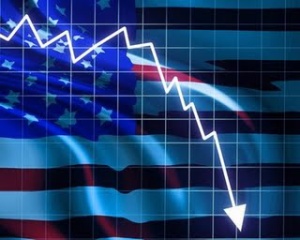USA TODAY
Behind the mainstream Wall Street happy talk about more stable financial markets and an improving economy are grim warnings of tough times ahead from a small cadre of doomsayers who warn that the worst of the financial crisis is still to come.
Harry Dent, author of the new book The Great Crash Ahead, says another stock market crash is coming due to a bad ending to the global debt bubble. He has pulled back on his earlier prediction of a crash in 2012, as central banks around the world have been flooding markets with money, giving stocks an artificial short-term boost. But a crash is coming in 2013 or 2014, he warns. “This will be a repeat of 2008-09, only bigger, when it finally hits,” Dent told USA TODAY.
Gerald Celente, a trend forecaster at the Trends Research Institute, says Americans should brace themselves for an “economic 9/11″ due to policymakers’ inability to solve the world’s financial and economic woes. The coming meltdown, he predicts, will lead to growing social unrest and anti-government sentiment, a U.S. dollar with far less purchasing power and more people out of work.
Celente won’t rule out another financial panic that could spark enough fear to cause a run on the nation’s banks by depositors. That risk could cause the government to invoke “economic martial law” and call a “bank holiday” and close banks as it did during the Great Depression.
“We see some kind of threat of that magnitude,” Celente, publisher of The Trends Journal newsletter, warned in an interview.
Robert Prechter, author of Conquer the Crash, first published in 2002 and updated in 2009, is still bearish. He says today’s economy has similarities to the Great Depression and warns that 1930s-style deflation is still poised to cause financial havoc. Prechter predicts that the major U.S. stock indexes, such as the Dow Jones industrials and Standard & Poor’s 500, will plunge below their bear market lows hit in March 2009 during the last financial crisis. The brief recovery will fail as it did in the 1930s, he says.
2 very different viewpoints
If he’s right, stocks would lose more than half of their value. “The economic recovery has been weak, so the next downturn should generate bad news in a big way,” Prechter said in an e-mail interview. “For the third time in a dozen years, the stock market is in a very bearish position.”
These dire forecasts differ sharply with the brighter outlooks being espoused by the bulls, or optimists, on Wall Street. Recent stock performance and fresh readings on the economy also suggest a future that is less gloomy than the doomsayers predict.
The Dow, for instance, is in rebound mode and has climbed back to levels not seen since the early days of the financial crisis in May 2008. Tech stocks in the Nasdaq composite are trading at levels last seen in 2000. Data on auto sales, manufacturing and consumer confidence have been firming. Job creation is also on the rise. The unemployment rate dipped to 8.3% in January, its lowest level in three years.
As a result, stock market strategists such as Rod Smyth of RiverFront Investment have been raising their outlooks for 2012. Smyth raised his target range for the S&P 500 to 1250-1500. If the market hits the top of the range, stocks would have risen 10%. Similarly, Brian Belski, strategist at Oppenheimer, recently said he remains comfortable with his year-end 2012 target of 1400. That’s up 2.5% from here. Bespoke Investment Group published research that shows the market, which is closing in on a new bull market high, has done well in the past once it breaks through old highs.
Bulls are betting that Europe’s banking system will be stabilized, minimizing the risk of a severe credit crisis. Bulls are also encouraged by recent data from around the world that show modest growth and a pickup in economic momentum.
Read More Here

No comments:
Post a Comment